Journalists are pioneering digital citizens.
For journalism, the change is not just in the tools - from typewriters to AI, from print newsrooms to electronic newsrooms - but also in the philosophy of journalism. Journalism is no longer alone on the "media stage", but shares space with social networks, blogs, podcasts, vlogs, livestreams... When everyone can be a news reporter, a storyteller, the press is forced to be a verifier, a leader and above all - a master of the truth. This is the fulcrum of "digital citizens" in today's hyper-connected world .
The "Digital Transformation" Handbook developed by the Ministry of Information and Communications defines digital citizens as people equipped with digital capacity to live in a fully digitalized environment. The 9 elements that make up digital citizens include: Ability to access digital information sources; ability to communicate in the digital environment; basic digital skills; online shopping; ethical standards in the digital environment; physical and psychological protection from the impact of the digital environment; rights and responsibilities in the digital environment; identification, authentication, personal data; privacy in the digital environment.
It is clear that the concept of “digital citizenship” does not simply refer to individuals who know how to use technology, but rather to those who have the right awareness, skills, attitudes and responsibilities when participating in the digital space. Digital citizens know how to protect personal data, know how to criticize information, know how to share responsibly and behave according to revolutionary ethical standards.
Journalists - by the very nature of their profession - are people who live, work and have direct influence in the digital space. If each digital citizen can reach a few hundred, a few thousand people through social networks, then each journalist can reach tens of thousands, millions of people through electronic press platforms, television, specialized social networks, and multimedia.
That means that every journalistic product is an act of digital citizenship with wide-ranging influence, and every journalist is a “high-level digital citizen” who creates trends, inspires thinking, builds standards, and sometimes, shapes social psychology.
The similarity between the two roles - journalist and digital citizen - is not only in the fact that both produce and share information, but more deeply, they share the same mission: spreading the values of right and wrong, promoting beauty, criticizing ugliness, protecting the truth and community responsibility.
In the era of comprehensive digital transformation, no one can stand outside the wheel of technology, but journalists are the force that must go first, must be pioneers, must adapt quickly and deeply. Digital space is no longer an option, but the default living and working environment of modern journalists.
Each journalist, in essence, carries a living “digital profile” – not only the works published in the mainstream press, but also all the behaviors, statements, and interactions they display in cyberspace. Unlike ordinary digital citizens, the image of a journalist not only reflects the individual but also represents the reputation of an entire editorial office, a press agency, and even the image of the national press in the eyes of the public.
They not only disseminate information but also create social norms, not only report news but also guide perceptions, not only reflect reality but also contribute to shaping the future. What is special about journalists is that they simultaneously hold a lot of power: the power of words, the power of platforms, the power of expertise and the power of direction. A journalist's article can spread strongly, influence millions of people, promote policy changes, or spark positive social movements.
However, because of this, journalists are also the most constrained people in the digital space. If an ordinary citizen can share the wrong article and remove it, journalists do not have the right to be negligent. Every status on personal social networks, every comment on forums, every statement or image they post can be quoted, misunderstood, distorted and thereby affect the public's trust in mainstream journalism.
Courage, skills, ethics and the ability to self-monitor become the minimum “shields” that every journalist needs to have to survive and work in the digital age. In other words, if society is moving towards digital citizenship, journalists are a higher level - they are the pioneering digital citizens, leading and shaping the values of digital society. It is from them that the public learns how to distinguish between truth and falsehood, understands the value of kindness and sees personal responsibility in the midst of a sea of noisy information. Therefore, the role of journalists as digital citizens does not lie in their proficiency in using technology, but in their becoming role models for a generation of citizens who are knowledgeable, responsible, ethical and able to master themselves amidst the myriad of connections.
Digital citizenship mission in journalism: specific, practical, challenging
When we say that journalists are pioneering digital citizens, it is not just a role but also entails a great, specific and not easy mission.
First of all, that mission is reflected in the fact that journalists must be the ones to preserve and spread the truth in an environment where fake news, incorrect news, and confusing news spread faster than any other type of information. If in the past, the press competed on speed, now the "survival" factor is accuracy. In the midst of a forest of unverified information, the appearance of an authentic, objective, and accurate article is not simply a professional act but also a responsible civic act. Preserving the truth is not only selecting accurate information to report but also proactively refuting, exposing, and arguing against false and harmful content that is spreading on social networks.
 |
Journalism in the digital transformation era. (Illustration: Internet) |
Second, journalists are role models for digital citizenship. Today’s digital citizens are not only judged by their education or technical skills, but also by how they behave online: whether they respect others, spread positive values, and use their knowledge to defend what is right. In all of this, journalists must take the lead, because they are the ones who write the standards. A journalist cannot advocate civilized behavior while using social media to attack, divide, or spread extremist views. A journalist cannot write articles demanding transparency while living anonymously and ambiguously in his or her own interactions. The exemplary, consistent, and honest work of journalists in cyberspace is the most convincing affirmation of the value of journalism in the digital age.
Third, journalists have the responsibility to ignite the spirit of criticism and the culture of social dialogue. When social networks become the main space for citizens to express their opinions, the press is an open platform for different voices to dialogue in a constructive spirit. Journalists need to raise issues, provide multi-dimensional perspectives, and create a space for civilized debate - that is not only a profession but also a high expression of a mature digital citizen. In a society where everyone can speak, it is valuable to have someone who knows how to make others listen, how to reconcile differences, and connect perspectives to create social consensus. No one can shoulder that mission but journalists.
Finally, journalists are the key force in building digital culture and social trust. When people talk about digital transformation, they often think of machines, software, and artificial intelligence. But without digital culture, all technology can be counterproductive. Journalists are the ones who shape how the public behaves, how the community evaluates information, and how society reacts to new things. Every article rich in human emotions, every film that promotes beauty, every piece of information that emphasizes kindness, is a seed of digital culture sown in the heart of society. In that journey, journalists not only "do journalism", but also quietly "become human" - that is, contribute to the creation of digital people, digital citizens who are responsible, knowledgeable, and compassionate.
Source: https://baophapluat.vn/nguoi-lam-bao-thoi-chuyen-doi-so-ganh-tren-vai-su-menh-cong-dan-so-post552439.html








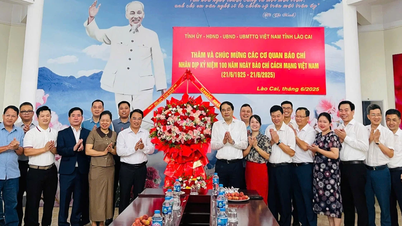





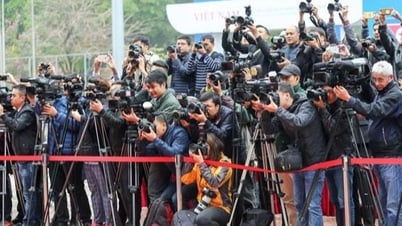









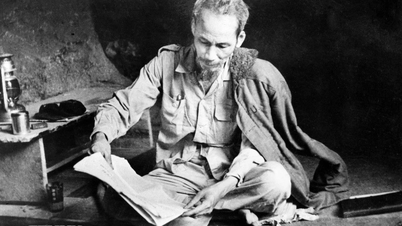
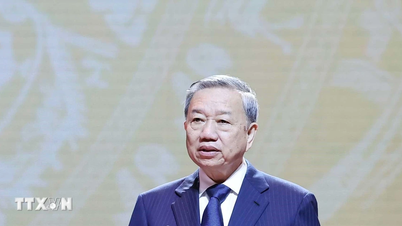






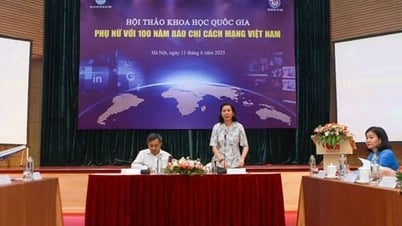



![[Photo] Overcoming the heat, practicing to prepare for the parade](https://vphoto.vietnam.vn/thumb/1200x675/vietnam/resource/IMAGE/2025/6/21/b93392e8da8243b8a32040d19590e048)





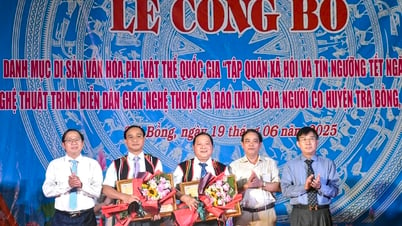









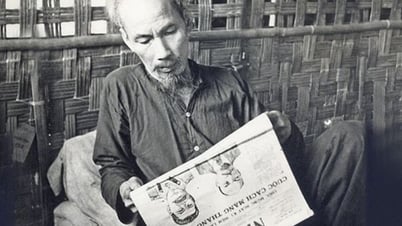
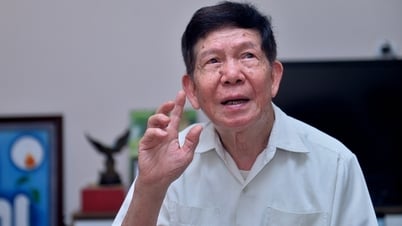








![[Maritime News] Wan Hai Lines invests $150 million to buy 48,000 containers](https://vphoto.vietnam.vn/thumb/402x226/vietnam/resource/IMAGE/2025/6/20/c945a62aff624b4bb5c25e67e9bcc1cb)






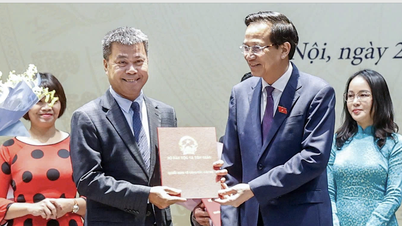

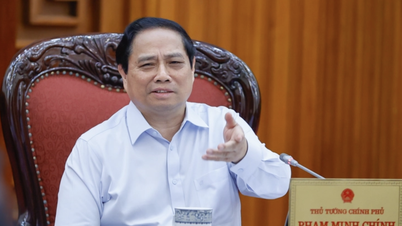



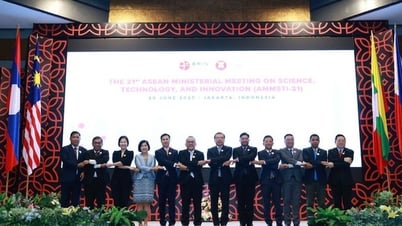


























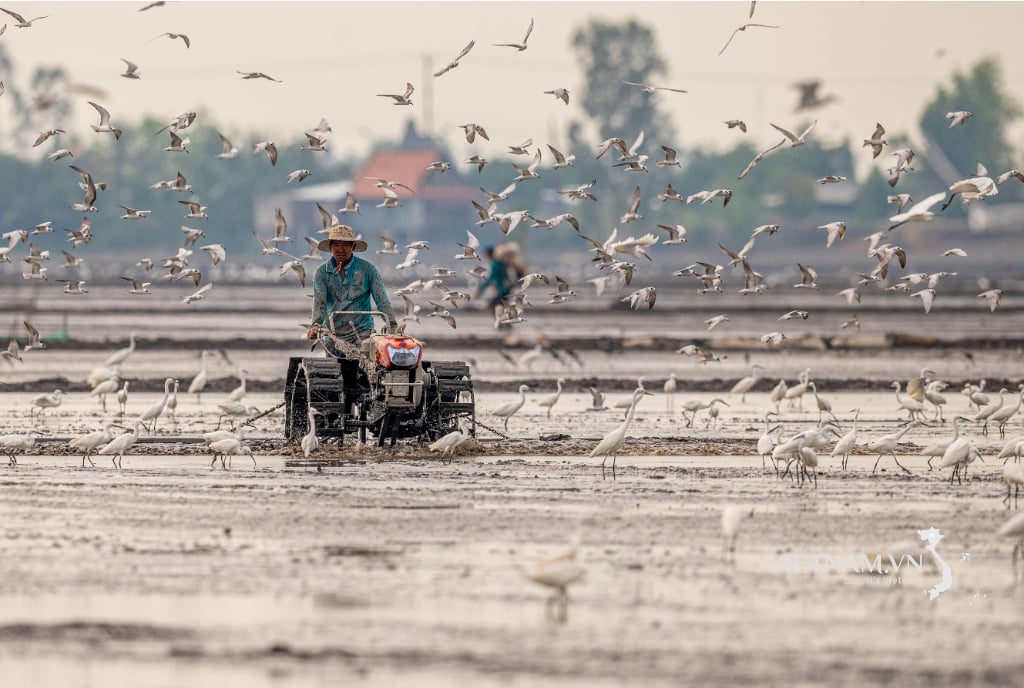


Comment (0)